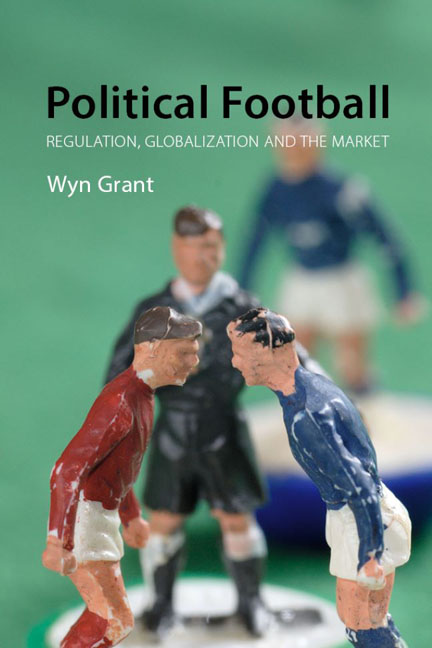1 - The political economy of football
Published online by Cambridge University Press: 20 December 2023
Summary
The excitement of attending a first football match is ingrained in the memory of many fans. They can recall the details of the journey to the ground, who they were with, the merchandise and food being sold outside and the feeling they had on entering the ground for the first time. They can remember the match itself, the emotional involvement of the other spectators around them, the singing and the chanting. I recall catching the number 53 bus from Plumstead Common at the age of six with my parents, walking with the crowds through Maryon Park and standing on the huge East Terrace at The Valley, the home of Charlton Athletic.
For many fans, that first experience begins a lifelong commitment that becomes an important part of their identity. Going to a match is not simply a release from the pressures of everyday life, important though that is, it also represents an opportunity to connect with an extended football family. This may include generations of the same family and old school friends. However, it may also involve “football friends” with whom the only contact is at the game, for a drink beforehand or afterwards. I frequently make the two-hour journey to attend Charlton home games to meet football friends in my birthplace of Greenwich for brunch and a pre-match pint.
Even if after moving away from the club's location, a fan's continuing support for their team can be a means of maintaining and reviving their connection with an area familiar to them. Topophilia, a love of place, and the cultural identity associated with a place, can be a powerful force. Of course, in some ways this is a nostalgic and sentimental interpretation, or at least a constructed version of the experience of football. Many fans never visit the ground of the team they support and simply follow their progress on television and social media. Football is now a global game with supporters of leading teams located all over the world. Inevitably this leads to a tension between a club as a global business, perhaps with foreign owners, and the idea of a club as an expression and embodiment of a particular community.
- Type
- Chapter
- Information
- Political FootballRegulation, Globalization and the Market, pp. 1 - 22Publisher: Agenda PublishingPrint publication year: 2021



